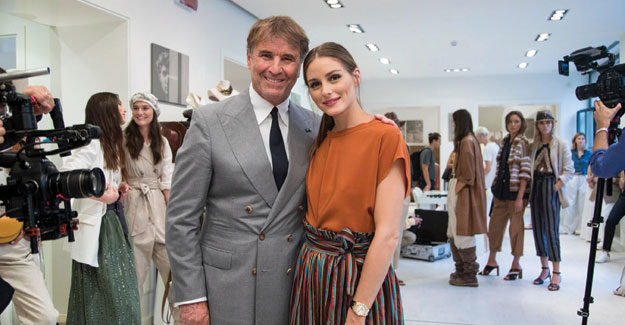
Brunello Cucinelli Is Giving Away $35 Million Of Clothing To People In Need
The new project, dubbed "Per L'Umanità" (or "For Humanity"), will focus on micro donations around the globe. A crisis sometimes brings out the best in people. Major global fashion companies were quick to make sizable donations to the cause of the moment, particularly to support caregivers, testing, and supplies of medical equipment. As the lockdown continued, many of those global companies were faced with the season that never was, a spring/summer 2020 collection. For Brunello Cucinelli, 66, who has helmed his own brand for more than 40 years, it represented unsold stock valued at around Euro 30 million (approximately US$ 35 million). Cucinelli shut down his factories, offices, and stores a full week before the Italian government made it mandatory and kept all his staff at home on full pay throughout the Italian lockdown. During this time, as well as making regular contact with his staff via video, Cucinelli pondered the fate of his summer 2020 collection. Even in good years, the most successful fashion brands are left with surplus stock. Some companies offload to third parties for multi-brand sample sales; others, to avoid stock seeping into the gray market and potentially weakening the brand image, go to the extreme lengths of burning their surplus clothes. (So much for sustainability.) For Brunello, such a path is anathema. "I don't want to get moralistic about it," he said, "but I cannot accept that what people have made with such passion should just go to waste." Cucinelli is as renowned for his propensity to recite uplifting humanist quotes from Marcus Aurelius (and sometimes print them on his cashmere sweatshirts) as he is to draw lessons from his early rustic life on a small farm in Umbria. Then, living entirely at the mercy of the seasons occasionally meant relying on small local acts of kindness. "My father told me a story of how an intense hailstorm killed our crops just before harvest. We had literally nothing," he says. "When the harvest came in, the neighboring farmer brought us 20 sacks of grain. Just like that. The next year, of course, we repaid the kindness." Brunello's father still lives opposite him, close to the rebuilt medieval hill village of Solomeo that is the company's HQ, a reminder perhaps as strong as the writings of the ancient philosophers (of which Brunello cultivates an ever-growing library) that keeping a sense of humanity is vital even when you're at the helm of a billion dollar business. Last week the designer announced that that US$ 35 million worth of unsold clothing from the men's and women's spring/summer 2020 collection will be relabeled "Per L'Umanità" (For Humanity) at Solomeo and then distributed piecemeal via a network of multiple small verified charities in Italy and globally. A 10-person committee, including six members of his family and four other people who work for him, will liaise with staffers and friends across the globe to identify and verify small scale charities who can get the clothes directly to people in need. Cucinelli was inspired by banker Mohammed Yunus from Bangladesh, the founder of Grameen Bank who, in 2006, won a Nobel Prize for his invention of the concept of micro credits, tiny loans on easy terms for the poor in order to effect what he called social development from below. "I'm lucky to be on the board at UNICEF," Cucinelli says, "so we could easily just ship it all off to UNICEF. But that's not what I wanted to do. I wanted to create a kind of amiable resource, something that is an ongoing investment in people. I think if the customers who buy our clothes, who know they are costly garments-I think if they know that any surplus is going to someone in need, they will be happy about it." "We will send out small shipments of maybe 30 pieces only, targeted to organisations who have a direct line to people in need. I figure this will be a two- or three-year project, mainly because I want to ensure it's done on a micro level and with deliveries repeated every month or two," he says. "I want it to be an ongoing process, not a one-off. It could be that in three or four years we will take the surplus from future seasons and use the 10-day down time in the factory between seasons to relabel it Per L'Humanità and continue to realise the same objective."
Textile Excellence
If you wish to Subscribe to Textile Excellence Print Edition, kindly fill in the below form and we shall get back to you with details.












